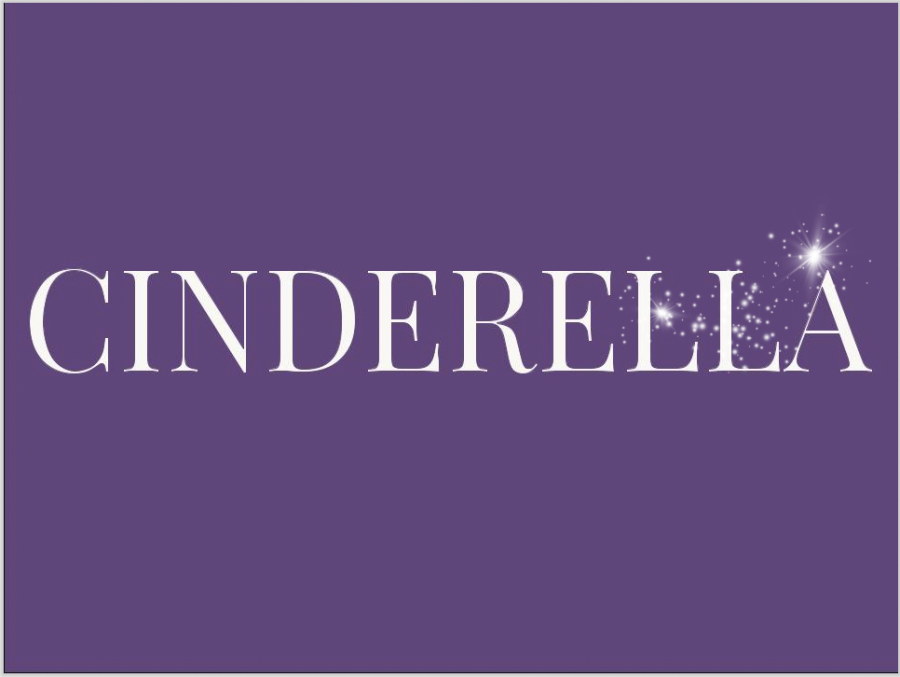Review: Glass Slipper, Gatekeep, and Girlboss: Amazon’s “Feminist” Cinderella
Cinderella has about 10 different remakes, so what makes Amazon’s 2021 retelling different from others? Arts and Entertainment Editor Lucy Demeo ’24 discuss the issues behind the forced “feminist” narrative.
No one who watched the trailer for Amazon’s new adaptation of Cinderella thought it was going to be brilliant or life-changing, but you’d at least hope for it to be effective in bringing something new to the hundreds of Cinderella retellings. To give you an idea of the quality of this movie, there’s a scene in which James Cordon discusses the mechanics of peeing. It makes you want to stir your brains up like soup so you’ll never again have to comprehend something so terrible. I don’t hate everything in the movie; Idina Menzel’s voice is, as always, incredible, some song arrangements are super energetic, and there are some legitimately funny scenes with the royal family.
My problem with this movie is the poorly done “feminism.” There have been a million Cinderella adaptations over the years, and the only reason this one could have to exist is its so-called feminist take on the fairytale. In this adaptation, Cinderella wants a dress shop, but she can’t have it because women can’t own shops; and, according to her stepmother: “No man would want to marry a girl who sells dresses.” I understand where this is coming from. Disney has made live-action adaptations of many of their classic films, revamping them to be more feminist, which just means making a princess more “spunky” and having characters in the story criticize the Disney formula (i.e. “You can’t marry a man you just met!” from Frozen). This is often a response to criticisms that the princesses are not good enough role models for little girls. These movies make tons of money, so it’s no surprise that Amazon is trying its hand at it. Here’s the thing, though – the “feminism” in this movie just makes Cinderella a Sassy Girlboss and creates a (not-at-all subtle) patriarchy for her to easily overcome.
This is not productive toward any cause other than making money. Little girls are no more likely to be successful in the business world from watching this Cinderella than they are to give up their voices for a guy from watching The Little Mermaid. It is likely that they will grow up believing that, throughout most of history, normal women did not have ambitions or seek their own fulfillment and that women who did more than simply lounge about the house waiting for a husband were abnormal and ostracized.
This film isn’t set in any specific time period; however, its costumes and sets are indicative of a fantasy version of pre-1790 Europe. But in Europe pre-1790, women certainly worked! They were shopkeepers, domestic workers, and organizers, and, as Cinderella wanted to be, seamstresses. Not only that, but they worked while being expected to take care of children and do work around the house. The movie implies that Cinderella was the first woman ever to want to own a business within the kingdom. It’s incredibly frustrating because this is supposed to be a feminist movie, and yet it reinforces the idea that women did nothing throughout all of history. The myth that women didn’t work in history is a product of society conflating people in history with the rich. Rich women didn’t work because they didn’t need to; and, instead, they were able to become educated and learn to fight for their rights politically. And the women who didn’t have access to education still fought for their own success.
And why is work the epitome of female liberation, anyway? Hey ladies, want to be treated equally and have agency over your life? Spend your life doing grueling work! It’s almost like this movie was made by a company that will benefit from you feeding into corporate culture and materialism. Thanks, Mr. Bezos!
Cinderella makes it seem novel that a woman would express ambitions and wants in “the olden times,” but, in reality, women have been speaking up for centuries. While both the law and society did not support women, they were able to assert their own independence in their jobs and the way they lived. Women spoke up for their own happiness; and, regardless of whether or not they meant to take down the patriarchy, simply advocating for oneself as a woman and following one’s ambitions in a system that restricts you is feminism. Also, acting as though a woman doing that would have been special diminishes all the real feminists’ achievements throughout history — before “feminism” was even conceivable. The Cinderella movie ignores them so that they can get brownie points for having a “girlboss” protagonist while at the same time contributing to their company’s success by encouraging materialistic hustle culture.
Lucy Demeo ‘24, Arts and Entertainment Editor
24ldemeo@montroseschool.org











